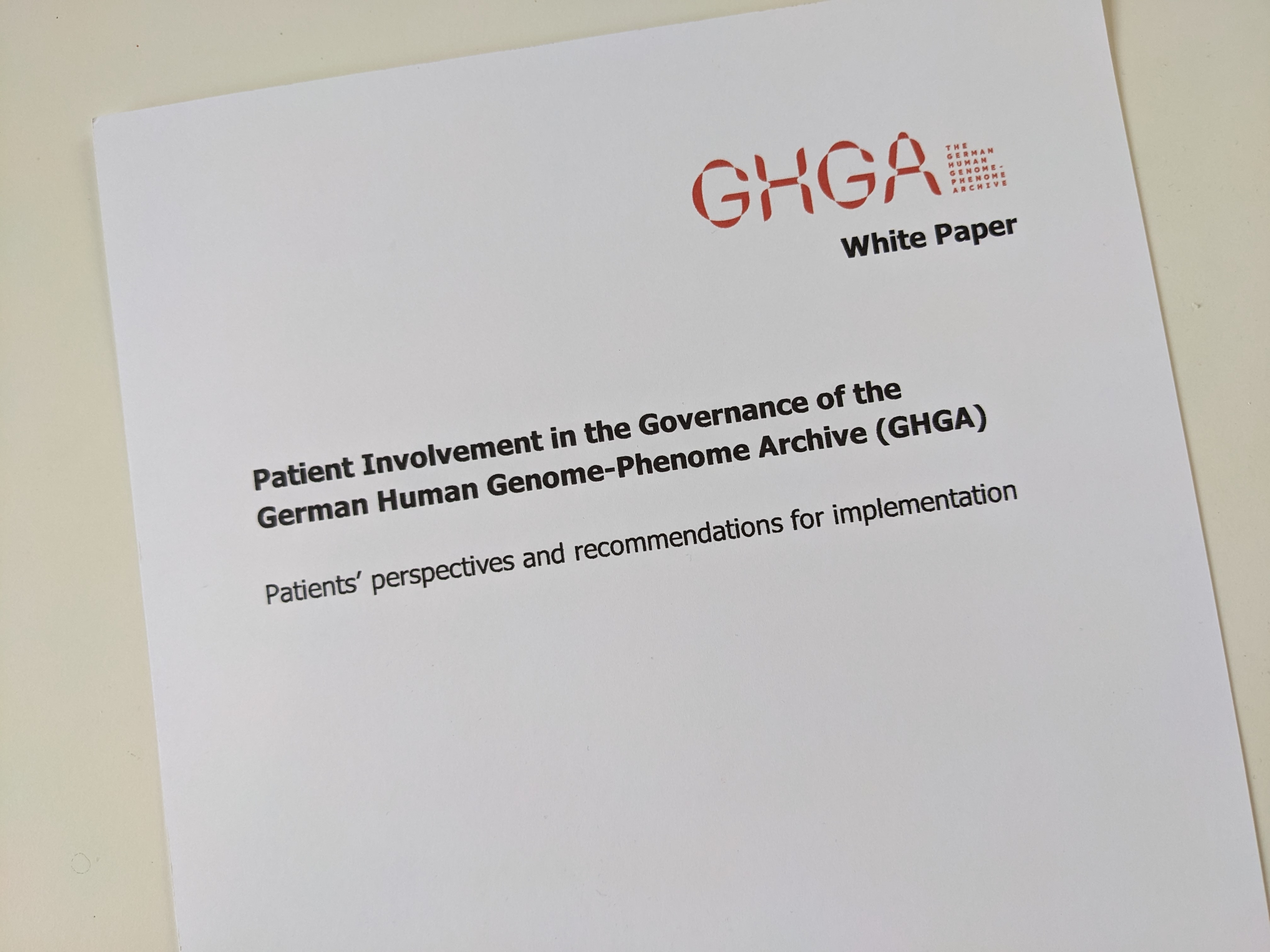GHGA White Paper on patient involvement
- 05 Jul 2023
- Eric Apondo
We previously reported about our participatory study exploring German cancer and rare disease Patients’ perspectives on Governance of an Omics Data Archive (PaGODA). In two deliberative forums held in July 2022, we assessed the patients' perspectives on patient involvement in the governance of genomic data archives in general and the German Human Genome-Phenome Archive (GHGA) specifically. In a follow-up dialogue event in March 2023 with the patients and GHGA members, we reached consensus on practical aspects of the implementation of impactful patient involvement in GHGA, including the decision to establish a patient advisory board.
In June 2023, GHGA published a white paper summarising the results of the PaGODA study and describing a concept with concrete steps for implementing meaningful patient involvement in the governance of GHGA. This flexible concept can be adopted for other data infrastructures.
The following were the main points raised in the forums. The participants:
- expressed a general willingness to support (secondary) medical research by sharing their genomic data,
- stressed the importance of data protection and privacy, but argued that it is also important to increase the usability of data for research,
- identified outreach activities as one of the main functions that would benefit from patient involvement,
- expressed an interest in being involved in data access procedures, insofar as this can be made possible,
- broadly supported a governance model with patient involvement through patient representatives.
The main elements of the concept developed in collaboration with the participants for implementing patient involvement in the governance of GHGA are as follows:
- Establishment of a Patient Advisory Board (PAB) in GHGA: Patient involvement through patient representatives who constitute a Patient Advisory Board (PAB). The PAB should initially have four members.
- Recruitment: The patient representatives should be recruited through an application process in collaboration with patient organisations.
- Acknowledgement and compensation: The contributions of patient representatives should be acknowledged in GHGA projects. The patient representatives should be financially compensated for their work.
- Continuous training: GHGA should make resources available for continuous training of patient representatives.
- Involvement of data controllers: Data Controllers are responsible for data access and organising data access procedures. They should be involved in operationalising and increasing the impact of meaningful patient involvement.
The White Paper with further details on the findings of the deliberative forums and the the consensus-building dialogue event, as well as the implementation concept, can be found on zenodo:
Apondo, Eric, Bruns, Andreas, Züger, Andrea, Mehlis, Katja, Müller, Anne, Brunsmann, Frank, Eufinger, Jan, Parker, Simon, Schickhardt, Christoph, Winkler, Eva, & The GHGA Consortium. (2023). Patient Involvement in the Governance of the German Human Genome-Phenome Archive (GHGA): Patients' perspectives and recommendations for implementation. Zenodo. https://doi.org/10.5281/zenodo.8099346






